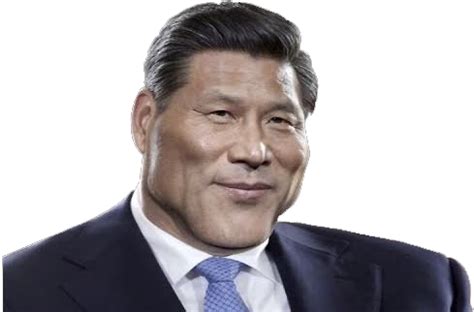
surely this is a bluff
There is a shift in the strategic calculus driving US foreign policy. During the Cold War, Europe’s relevance hinged on its role as the frontline against the USSR. Today, Russia no longer poses an ideological challenge to the US, and China’s rise as a peer adversary demands a full pivot to Asia. On top of it, Russia’s defeat of NATO in Ukraine makes further expansion east impossible. By disentangling from Europe, the US can husband its remaining resources and diplomatic capital in order to attempt to contain China. Europe, meanwhile, has become a secondary theater, lacking the geopolitical weight to justify America’s historical commitment.
NATO also faces irrelevance as transatlantic unity fractures. The growing ideological divide between Europe and the US means that there is little incentive to sustain a costly alliance. Abandoning NATO would not only reduce US commitment to Europe, but Europe would still be dependent on the US arms exports. Europe’s panicked defense spending could exceed $800 billion annually and will flow disproportionately to American defense contractors, as EU nations lack the industrial capacity to modernize militaries independently.
Growing skepticism toward the EU by Trump admin is no secret either. Vance and other prominent members of the admin openly criticize the bloc’s cohesion, which suggests that the US would prefer bilateral dealings with fragmented European states. A post-NATO landscape would empower the US to exploit intra-EU divisions, weakening collective bargaining power. A fractured and scared Europe is an ideal outcome from US perspective.
Incidentally, I had some thoughts on the subject here https://dialecticaldispatches.substack.com/p/when-market-fundamentalism-collides
I hear what you’re saying, but I would argue it’s a ploy to enforce the 5% NATO target knowing the eurocrats always roll over
it would still seem like a bridge too far at the current juncture for the americans to let NATO fail and concede unopposed security hegemony over the EU, a rebalancing to make them carry costs makes much more sense to me and I view it in that light (though I obviously take your point about the balance of military industrial capacities)
also there are rumblings that this US admin is beginning to accept multipolarity; if that is true surely that reframes the strategic outlook and calls a full pivot to asia into question
I don’t think bumping military spending to 5% will actually achieve much of anything tangible as long as the military industry is privatized. This is the reason NATO as a whole was not able to ramp up production to match Russia over the past three years. Throwing more money at the problem isn’t going to change that.
I think rebalancing to put more of the burden on the EU is the plan, but I think that will lead to NATO collapsing in the long run. The whole value proposition of NATO is that the US provides protection to Europe. If the US starts pulling back, then they’re going to start losing political influence over Europe as a result. Meanwhile, economic situation in Europe is pretty dire already leading to a lot of political unrest. Mass austerity required to ramp up military spending to 5% is only going to make the situation worse.
I’m also not convinced that the US really is accepting multipolarity. I think the whole trade war with China was a trial balloon to see what would happen in case of war, and to identify weaknesses in the supply chains.
I would just be (positively) surprised if the Americans allow NATO to fall apart in the medium term as it would seem strategically foolish in my view given how succesful it’s been in completely subjugating the Europeans (remember Gaullism?), but yes I agree in the long term the economics are against the Western powers and it shouldn’t really matter what they do
europe will lose what’s left of its tattered social security nets to juice american defence stocks for subpar equipment one last time, no question about that either
What it comes down to is that the US power is becoming depleted, and they’re going to have to husband their resources. This is what they’re really talking about when they acknowledge multipolarity. It’s not that the US is going to accept a world with other countries being equals, it’s that they have to cut their losses in Europe to try and take on China while they think they can still do it.
My bet is that the opportunity cost for imposing new and meaningful constraints on China is already too high and this has begun to clarify for US elites - basically the Asia pivot is sunk cost in the form it was conceived of during the Obama admin, as full spectrum dominance is no longer a realistic goal at any price.
Why then cut Europe loose by allowing NATO to fall apart if you can strip them for parts in the medium term using that tried and tested trojan horse?
Therefore, if we suppose China will remain on the board in its present form, the maintenance of a heavy handed material and ideological infrastructure to prevent Europe from economically pivoting to China, particularly once the US ramps up cannibalisation of alliance members, would appear to be a necessity. This is one lesson from the last few months for me.
As an ideological project NATO works amazingly, even Europeans populations are still bought in. It’s like the final American postwar power projection tool that is functioning just as it was intended to in 1949.
I agree that in practical terms it’s obviously impossible for the US to contain China at this point. The whole tariffs fiasco made that crystal clear. However, it’s also clear that the policy the US pursues is rarely rooted in reality. There’s a belief in US that they can contain China and they will continue pour resources trying to achieve a goal that’s not achievable the same way they’re still pouring resources into a lost proxy war in Ukraine.
Meanwhile, I don’t think pulling out of NATO is in any way at odds with stripping Europe for parts. As I noted earlier, Europe will still be dependent on the US military industry, and break up of NATO is likely to spur panic buying which will give an immediate boost to US war industry. I also expect the US to ramp up attacks on the EU because it will be easier to strip Europe for parts once it’s atomized.
NATO could only work as a project when the West was the dominant economic bloc in the world. Now that BRICS is becoming a bigger economy, the west finds itself in a disarray and the US being the biggest fish is now starting to cannibalize its vassals to keep its own economy afloat.
Where to is the problem. I don’t think the Hague is big enough to hold them all.




